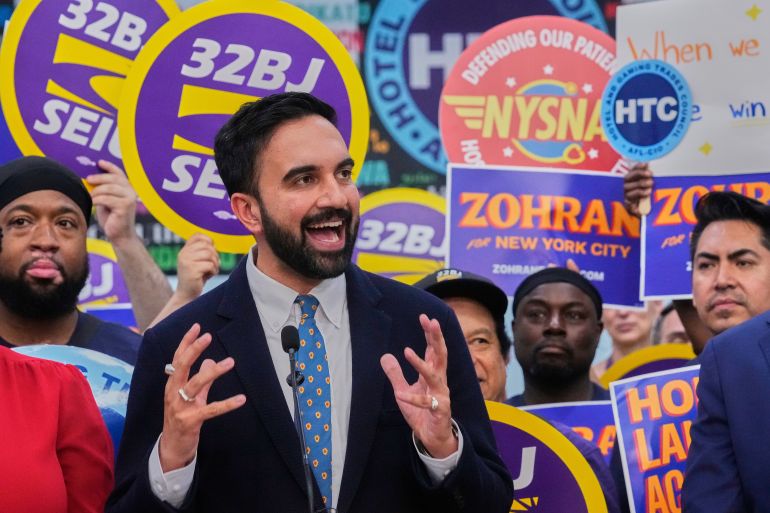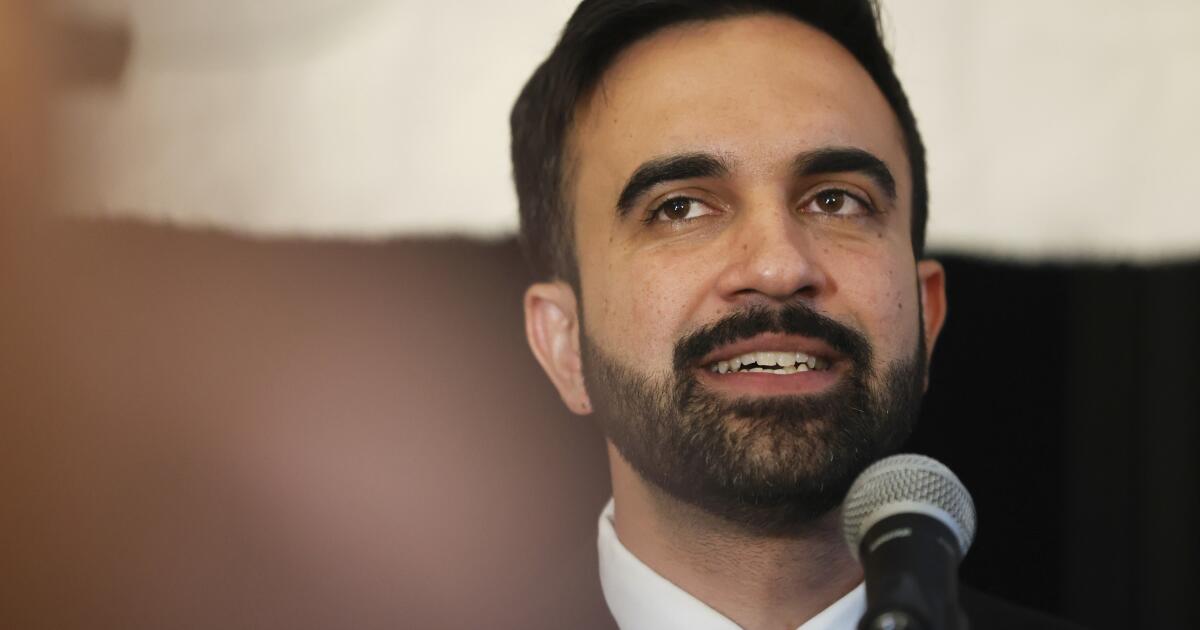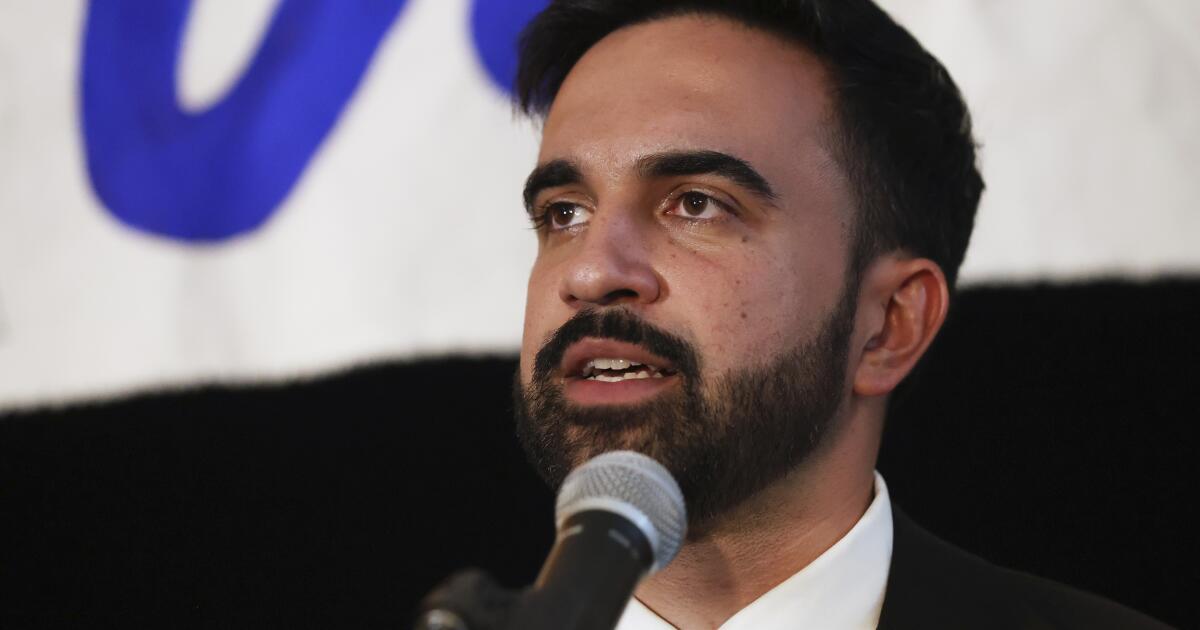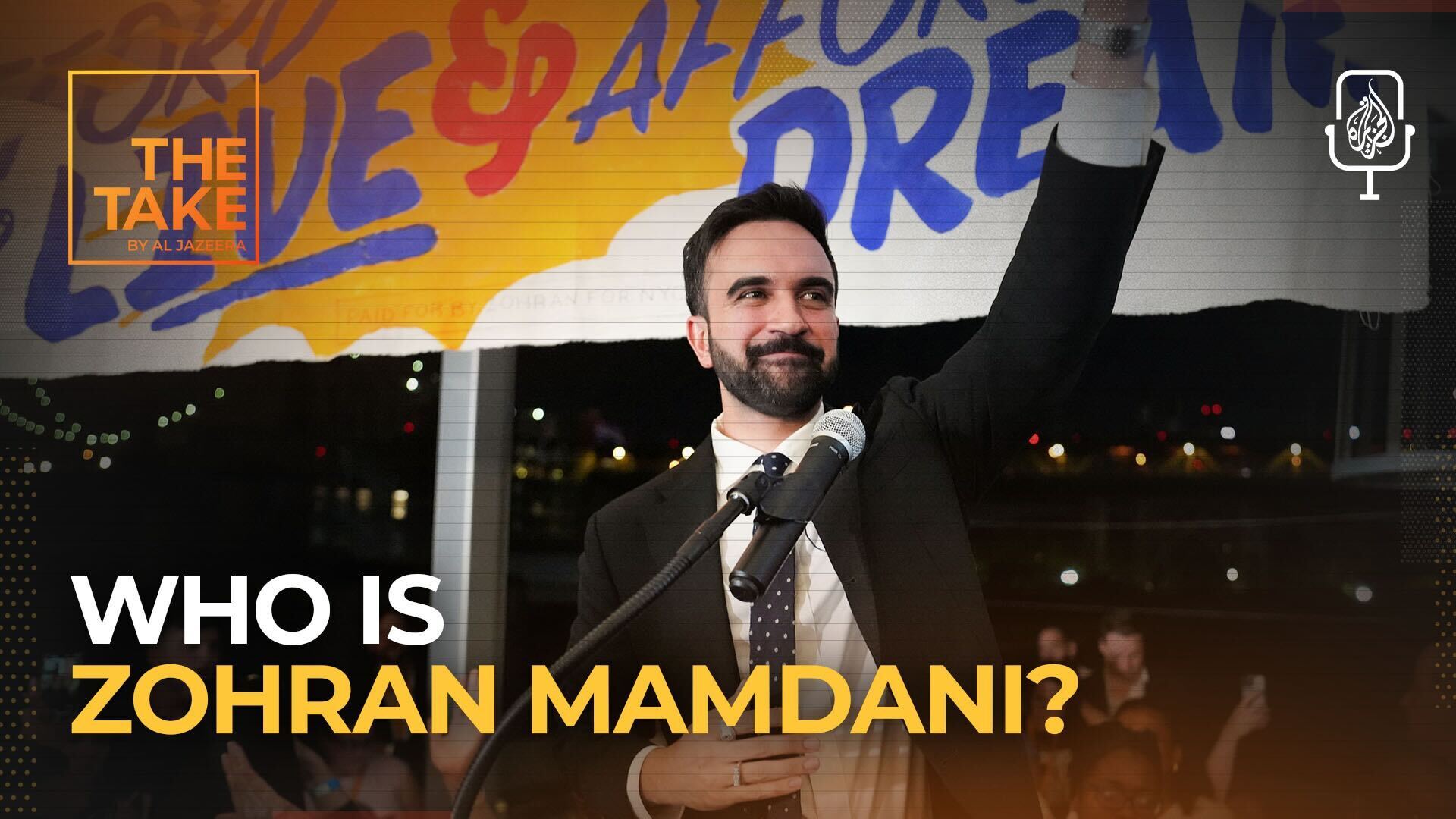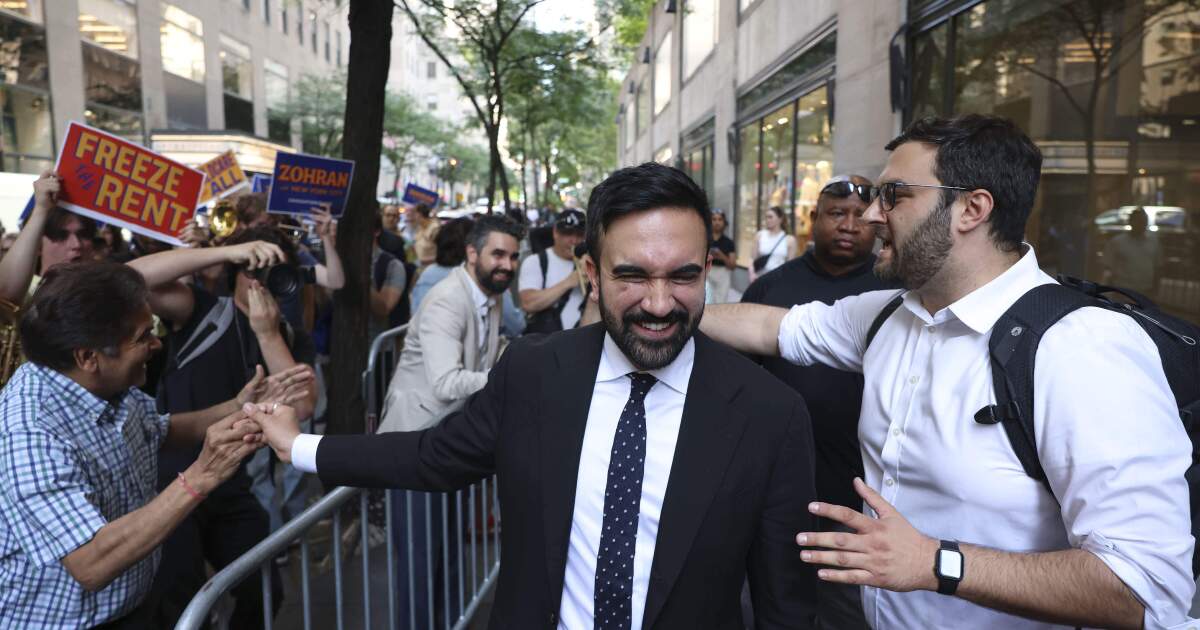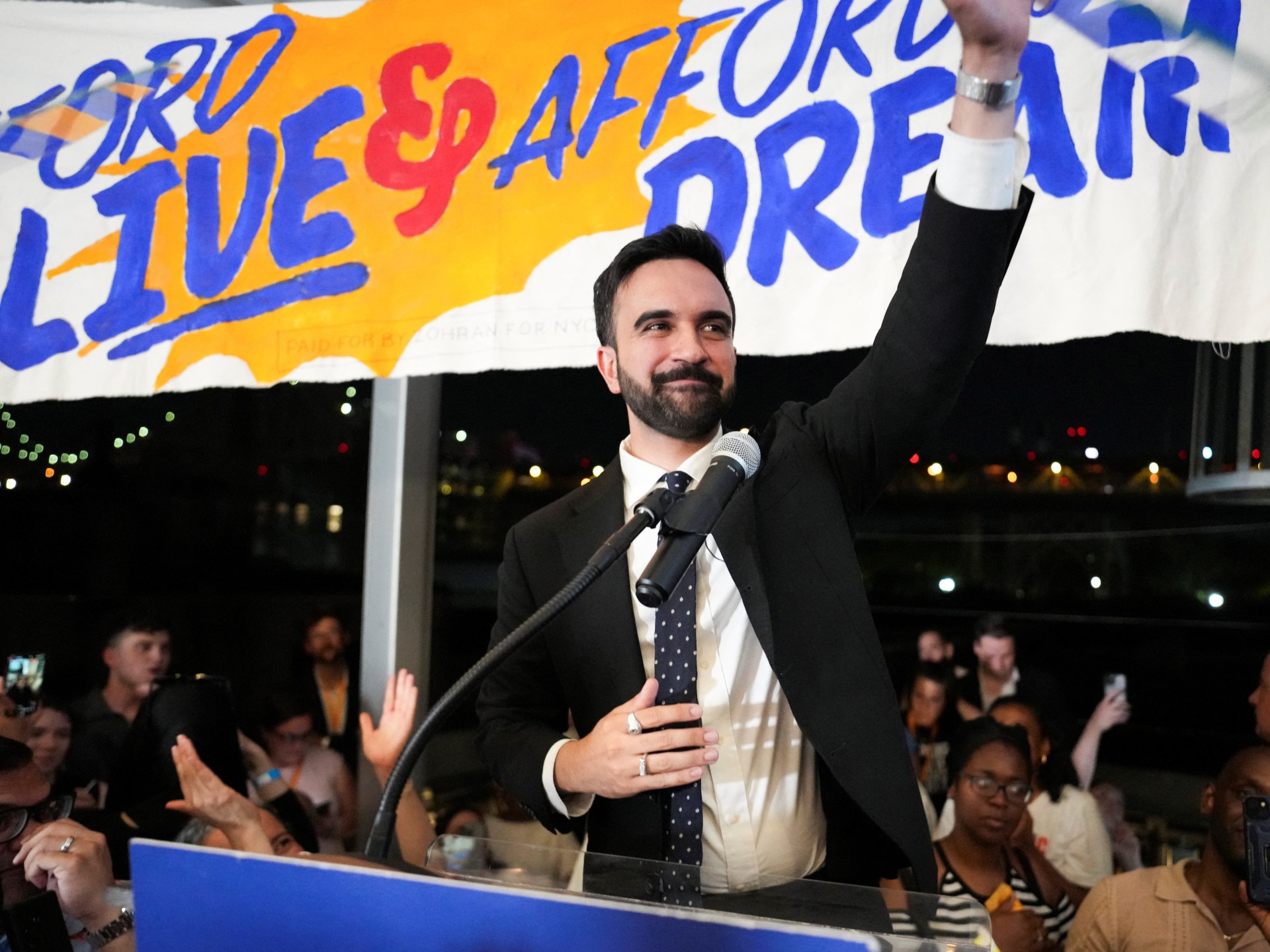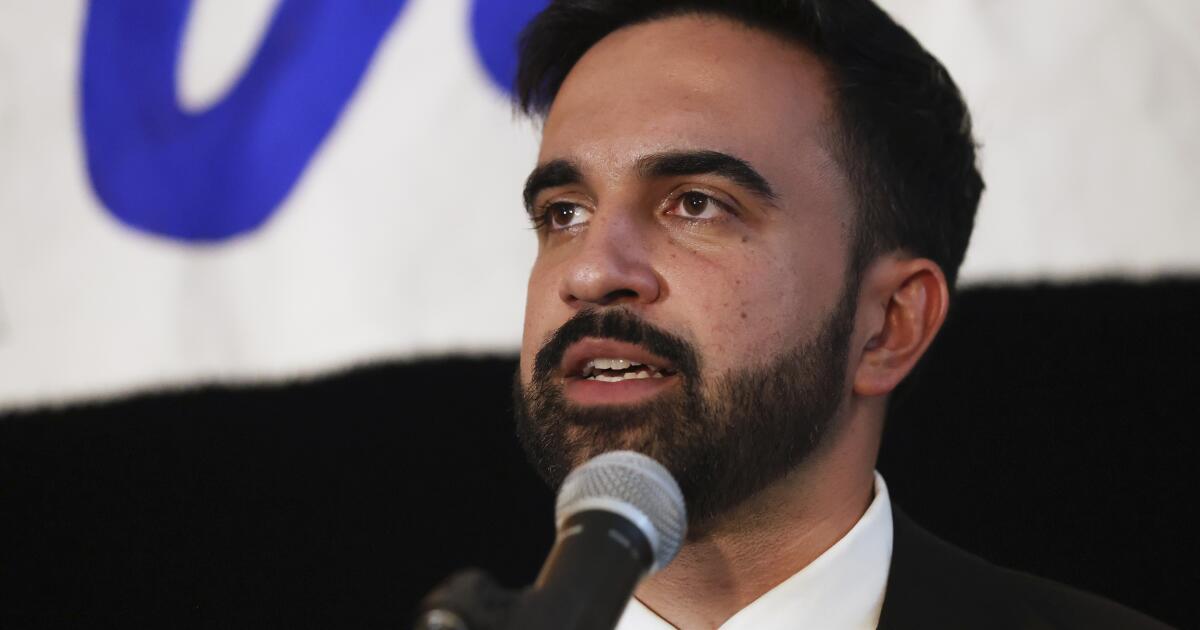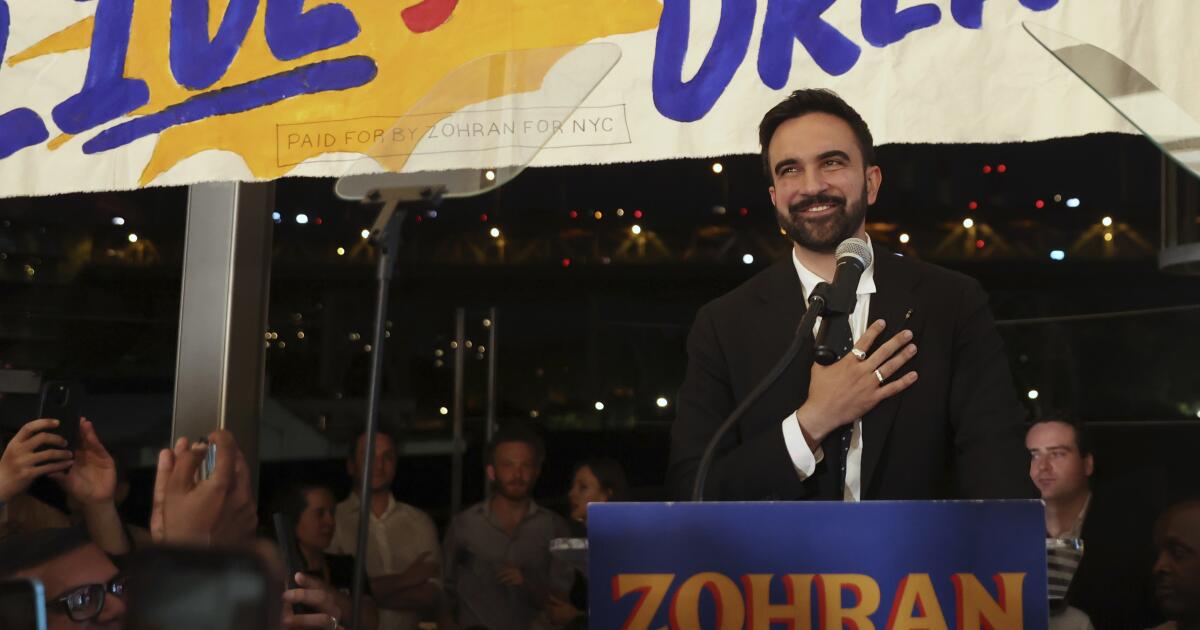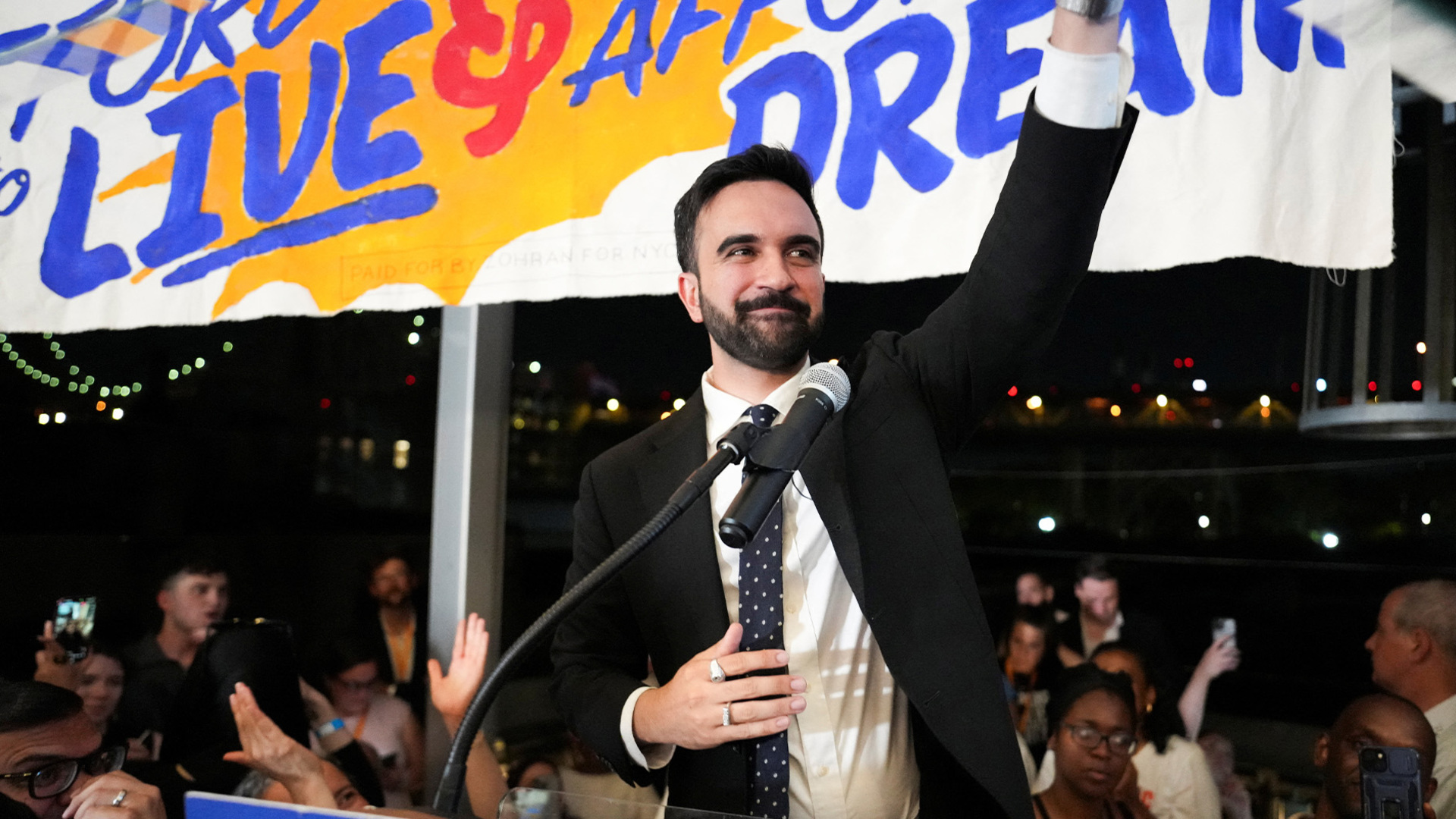Did Democrat Zohran Mamdani struggle with Black and working-class voters? | Elections News
Early Saturday morning, New York City mayoral candidate Zohran Mamdani stepped on stage in the historically Black neighbourhood of Harlem.
His message was a familiar one: that he would be the best candidate to fight for the city’s marginalised and working classes.
“There have been many a question as to whether this city will simply become a museum of a place that once was — a museum of where working people could thrive,” Mamdani told the crowd.
On June 24, Mamdani scored an upset, winning New York City’s Democratic mayoral primary over frontrunner Andrew Cuomo, a former governor.
Just this Tuesday, the round-three results were released, showing Mamdani with a whopping 56 percent of the ranked-choice vote, dwarfing Cuomo’s 44 percent.
That dominant performance sent ripples around the United States political sphere. But it also led to scrutiny about where Mamdani’s weaknesses may lie.
Preliminary results suggest that Mamdani struggled in lower-income neighbourhoods like Brownsville and East Flatbush, where Cuomo took a marked lead.
In both of those areas, more than 60 percent of residents are Black. The neighbourhoods also share high poverty rates, with Brownsville at 32.4 percent and East Flatbush at 18.9, compared with the citywide rate of 18.2 percent.
One widely cited analysis from The New York Times found that 49 percent of precincts with a low-income majority tilted towards Cuomo, compared with 38 percent for Mamdani.
In precincts with a majority of Black residents, the pro-Cuomo number rose to 51 percent.
Those statistics raised questions about whether Mamdani’s promise to restore affordability in New York failed to resonate — or whether the numbers conceal a more complicated story.

A big-name opponent
Even before the primary results were called, there were some indications that Mamdani faced a steep challenge among lower-income and Black voters.
A Marist poll (PDF) from May found that 47 percent of respondents whose household income was less than $50,000 planned to vote for Cuomo as their first choice.
Mamdani was a distant second among the nine possible candidates, with 11 percent support. Meanwhile, he came in third place in the poll among Black voters, with 8 percent support to Cuomo’s 50 percent.
Experts say Cuomo had several factors weighing in his favour. Jerry Skurnik, a political consultant, pointed out that Cuomo was a well-known figure before June’s primary.
Not only was Cuomo a two-time governor, but he is also the son of a former governor.
His decades-long career in politics included stints in the cabinet of President Bill Clinton. Establishment figures like Congressman Jim Clyburn of South Carolina ultimately backed his campaign.
Mamdani, by contrast, is newer to the political arena: The 33-year-old has served in the New York State Assembly since 2020.
“Most people expected Cuomo to do well in the minority areas,” Skurnik said.
“He had name recognition, and he also had endorsements in most of those areas by local elected officials.”
Skurnik also noted that primaries typically attract older voters, who are considered a greater part of Cuomo’s voting bloc.
There, however, Skurnik points out that Mamdani defied the odds. A New York Times analysis suggested that voters in their 20s and 30s turned out in significantly higher numbers than for the 2021 mayoral primary.
That contributed to the highest overall Democratic primary turnout since 1989, when David Dinkins campaigned to become the first Black mayor of New York City.
“Younger voters came out in much higher numbers than anticipated,” Skurnik said. “Even in areas that Mamdani lost, he did by lower margins than people anticipated, paving the way for his victory.”

Courting the risk-averse
Other experts speculated that Mamdani, as a progressive candidate facing a centrist, might have been perceived as a riskier option.
John Gershman, a professor of public service at New York University, indicated that uncertainty can affect voter choices, particularly for those from vulnerable communities or precarious economic circumstances.
“For low-income families and the Black community, I think very much the calculus is not so much who’s the best candidate, but with which candidate am I risking the least, or am I least likely to lose?” Gershman said.
“In some ways, the devil you know is better than the devil you don’t.”
Gershman added, however, that Mamdani fit into a broader trend within the Democratic Party.
He pointed out that low-income voters leaned rightwards towards Republican Donald Trump in the 2024 presidential election despite Democrats having a stronger “anti-poverty element” in their agenda.
Trump even made headway among Black voters, though the majority remain Democrats.
Gershman tied the trend back to name recognition and media habits. More low-income voters, he said, get their news from legacy media sources like television and newspapers.
Cuomo relied more heavily on those outlets for publicity. While Mamdani did make a sizable TV ad buy, he also campaigned heavily on social media with videos that were more informal and conversational.
Some conservative commentators, however, seized upon The New York Times’ analysis to arrive at a different interpretation about why certain voters might perceive risk in Mamdani’s campaign.
Speaking to Fox News, Republican strategist Karl Rove cited the statistics to argue that low-income voters may fear the tax burden that might accompany greater anti-poverty spending.
“Low-income voters said, ‘You know what? We’re not dumb enough to think that this is all going to be cost-free,’” Rove said, taking a swipe at Mamdani.
“There aren’t enough rich people to pay all of the promises he’s making.”

A complex demographic patchwork
But many experts say the broad voting trends fail to capture the complexity and overlaps of the communities they represent.
Michael Lange, a writer and political strategist who researched the primary, noted that many low-income communities in New York are Hispanic or Asian — demographics that gave strong backing to Mamdani.
“There were many lower-income neighbourhoods that Zohran Mamdani did well in, particularly in Queens, [like] Elmhurst and Flushing, that are almost exclusively Asian,” Lange said.
Those areas, he added, “verge on low income to working poor to working class”.
Activist and local historian Asad Dandia, who supports Mamdani, warned it would be wrong to see his campaign as solely drawing white or upper-class voters.
Rather, Dandia argued that Mamdani’s candidacy brought together a patchwork of diverse communities, from the Pakistani enclave in Brighton Beach to the Latino majority in Corona, Queens.
Even in some Black and low-income neighbourhoods, Dandia pointed out that Mamdani came out on top.
“How can you say that he’s not appealing to low-income voters when he’s winning Harlem?” Dandia asked.
But communities are constantly evolving, as are their politics. Juan Battle, a professor at the City University of New York, emphasised that every election cycle is different — and voter priorities can shift.
He pointed out that, during the last mayoral election, crime was the dominant theme. It helped buoy the current mayor, former police officer Eric Adams, to power.
“If this were happening four years ago, where crime was a big issue, I don’t think that Mamdani would have won,” Battle said. “Cuomo would have definitely won.”

No monoliths in election season
Mandami is set to face Adams himself in November’s general elections. Cuomo, too, has not yet ruled out a third-party run on the final ballot.
Still, as the Democratic nominee, Mamdani has become the frontrunner in the race — and his campaign is likely to continue building its coalition, including through appeals to the demographics it may have lost in the primary.
That includes Black voters. But in order to succeed, Portia Allen-Kyle, the executive director of the racial justice group Color of Change, believes that Mamdani needs to understand the spectrum of viewpoints in the Black community.
“Black voters are not a monolith, as we saw that on [election] day,” she said.
Allen-Kyle believes authenticity and innovation will be key to reaching Black voters come November. She also warned against relying too heavily on the same popular shows where other politicians make appearances.
“In the same way you can no longer just go to churches to reach Black voters, we’re not all listening to The Breakfast Club or to Ebro in the Morning,” she explained, referencing two radio shows that Mamdani has appeared on.
As he continues to reach out to Black voters ahead of November, Mamdani has made allies with a civil rights icon: Reverend Al Sharpton.
At Saturday’s event, Sharpton himself reflected on The New York Times’ findings about Mamdani and the Black vote.
“There was a story in The New York Times, two days after the primary, about Black votes,” Sharpton told the crowd.
He pointed out that Mamdani could have chosen to appeal to other communities, where his support was stronger. But Mamdani’s “courage” had won his support.
“Any other kind of politician would have played against the Black community,” Sharpton said. “He decided to come to the Black community.”
